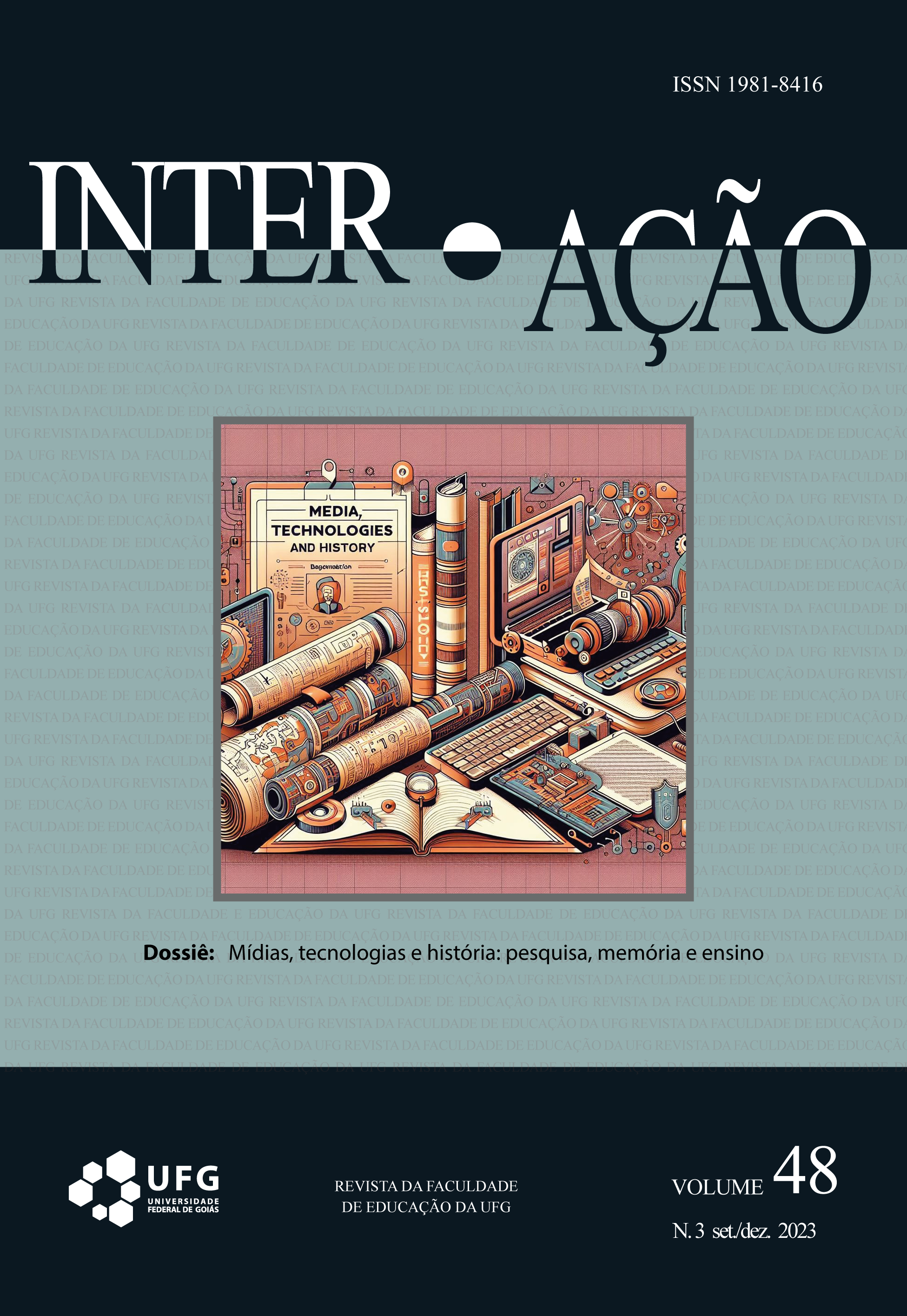MEMORIES OF SOCIAL WHITDRAWAL AND THE CHALLENGE OF PRESENCE MAKING: THE TEACHING CRAFT DURING AND AFTER THE COVID-19 PANDEMIC IN BRAZIL
DOI:
https://doi.org/10.5216/ia.v48i3.76636Abstract
This article addresses the strategies employed by public school teachers to generate acts of presence, so necessary for the achievement of the goals of teaching work, especially in the pandemic period. This need to build presence was crossed by excesses of screens and several infidelities of the environment, from the need to learn resources to the (un)availability of good quality equipment and network. Through the referential of Labor Clinics and articulating the generation of presence acts to the generation of kinship and the Cat's Cradle Game, concepts by Donna Haraway, we analyze aspects of this process which led teachers to modify the strategies of craft used until then, as well as involved extreme fatigue resulting from this situation of urgent need to create strategies of presence facing the health scenario which imposed confinement.
KEYWORDS: Social Withdrawal. Teaching. Technologies. Presence.
Downloads
References
AMADOR, F; FONSECA, T. M. G. Atividade: o trabalho sob o signo do inacabamento. In: ROSENBERG, D. S.; RONCHI FILHO, J.; BARROS, M. E. B. de. (org.). Trabalho docente e poder de agir: clínica da atividade, devires e análises. Vitória: EDUFES, 2011, p. 19-50.
CANGUILHEM, G. O normal e o patológico. 7.ed. Rio de Janeiro: Forense
Universitária, 2014.
CASTRO, L. R.; BESSET, V. L. (org.). Pesquisa-intervenção na infância e juventude. Rio de Janeiro: NAU/ FAPERJ, 2008.
CLOT, Y. Le travailsansl’homm, Paris: La Découverte, 1985.
CLOT, Y. A Função Psicológica do Trabalho. Petrópolis/RJ: Vozes, 2006.
CLOT, Y. Trabalho e Poder de Agir. Belo Horizonte: Sobrefactum, 2010.
CLOT, Y. A contribuição de Tosquelles à Clínica do Trabalho. Trabalho & Educação, Belo Horizonte, 22(1), p. 199-208, jan./abr. 2013a.
CLOT, Y. O ofício como operador de saúde. Cadernos de Psicologia Social do Trabalho, v. 16, no especial 1, p. 1-11., 2013b.
FARINA, J. T.; FONSECA, T. M. G. Clinicar. In: Tania Mara Galli Fonseca; Maria Lívia do Nascimento; Cleci Maraschin. (Org.). Pesquisar na Diferença: um abecedário. 1ed.Porto Alegre: Editora Sulina, 2012, v. 1, p. 49-.
HARAWAY, D. J. Antropologia do ciborgue: as vertigens do pós-humano. 2. ed. Belo Horizonte: Autêntica Editora, 2009.
HARAWAY, D. J. Seguir com el problema: generar parentesco en el Chthuluceno. Buenos Aires: Consonni, 2019.
HARAWAY, D. J. O manifesto das espécies companheiras: cachorros, pessoas e alteridade significativa. Rio de Janeiro: Bazar do Tempo, 2021.
SCHWARTZ, Y. A Comunidade Científica Ampliada e o Regime de Produção de
Saberes. Trabalho & Educação, Belo Horizonte, n.7, p. 38-46, jul./dez. 2000.
SCHWARTZ, Y. USO de si e competência. In: SCHWARTZ, Y.; DURRIVE, L. (org.). Conversas sobre a atividade humana. Niterói: Universidade Federal Fluminense, 2007.
WINNICOTT, D. O brincar e a realidade. São Paulo: Ubu, 2019.
Published
How to Cite
Issue
Section
License
Copyright (c) 2023 Fernanda Spanier Amador, Juliana Prediger, Lívia Ricardo Fernandes, Cristiane da Silva Costa

This work is licensed under a Creative Commons Attribution-NonCommercial 4.0 International License.
Inter-Ação uses the Creative Commons Attribution 4.0 License for Open Access Journals (Open Archives Initiative - OAI) as the basis for the transfer of rights. Open access means making documents available on the Internet free of charge, so that users can read, download, copy, distribute, print, search, or link to the full text of documents, process them for indexing, use them as input data for software programs, or use them for any other lawful purpose, without financial, legal, or technical barriers.
Authors publishing in this journal agree to the following conditions:
1) Authors retain copyright and grant the journal the right of first publication, with the work simultaneously licensed under the Creative Commons Attribution License, which permits redistribution of the work with attribution and first publication in this journal.
2) Authors are permitted to enter into additional, separate agreements for non-exclusive distribution of the version of the work published in this journal (e.g., for publication in an institutional repository or as a book chapter), with attribution and first publication in this journal.
3) Authors are permitted and encouraged to publish and distribute their work online (e.g. in institutional repositories or on their home page) at any time before or during the editorial process, as this may generate productive changes as well as increase the impact and citation of the published work.















